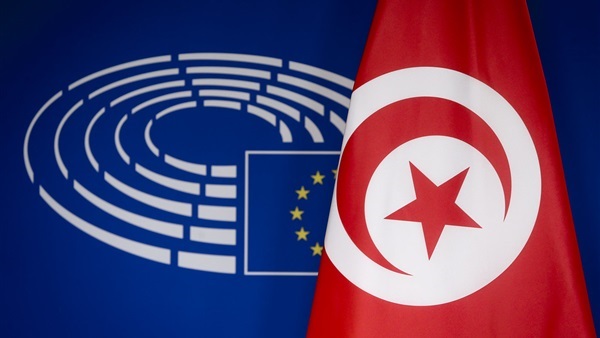Tunisia Raises Opposition against Europe for Failure to Fulfill Financial Commitments

The strategic partnership agreement between the European
Commission and Tunisia, established in July of the previous year, is facing
mounting pressure. This is part of Europe's efforts to counter the waves of
irregular migration primarily emanating from Tunisia in North Africa towards
Europe.
Tunisia Rejects European Aid:
Just three days ago, Tunisian President Kais Saied,
during a meeting with Foreign Minister Nabil Ammar, publicly announced
Tunisia's rejection of aid allocated by the European Union, justifying this
stance by characterizing the amount as a charitable donation rather than
cooperation in line with the memorandum of understanding between the Union and
Tunisia.
European Commission's Commitments:
In September 2023, the European Commission reaffirmed its
commitment to disburse the funds specified in the agreement, emphasizing the
urgency of these funds for Tunisia. A sum of 42 million euros was disbursed
quickly out of a total of 105 million euros, a move that President Saied
perceived as a breach of the agreement.
The Dispute's Dimensions:
The contours of the dispute between Tunisia and the
European Union have become increasingly evident, gradually undermining the
agreement. Voices from countries like Germany began criticizing the agreement
due to concerns about human rights and suspicions of inhumane treatment by
Tunisian security forces towards irregular migrants.
On the other hand, there were supportive voices in Europe
for the agreement, with Italy at the forefront. However, this dispute has
translated into a delay in the disbursement of funds.
Last month, Tunisia refused to host a European delegation
that was intended to meet with Tunisian opposition and civil society to prepare
for a national dialogue. Tunisia cited the delegation's failure to coordinate
with the Tunisian administration ahead of their arrival as the reason for their
rejection.
As of this moment, it remains unclear whether the dispute
over the July agreement between Tunisia and Europe will be resolved. Tunisia
has not yet received the European aid package, as declared by the European
Union.
Evolving Predicament:
Over the past few months, expectations leaned towards
Tunisia no longer needing to negotiate with the International Monetary Fund, as
Europe had allocated financial aid multiple times. However, the recent
statement by Kamal El Fakih, the Tunisian Interior Minister, indicates that
this has not materialized.
This statement is the first of its kind from a Tunisian
minister, as most official statements have revolved around not settling
migrants in Tunisia.
Fate of the Agreement:
All indications point towards further erosion of the
agreement, given the internal European dispute over the agreement's stance on
human rights and the financial support commitment. Europe, however, is
compelled to cooperate with Tunisia, being the primary source of most irregular
migration, necessitating a solution that satisfies Tunisia and its agreement's
cautious supporters.
In contrast, Tunisia appears to be compelled once again
to sit down with the International Monetary Fund after European commitments,
which Tunisia had relied upon to meet its financial needs amidst a severe
economic crisis, have faltered.
Notably, all of this unfolds in parallel with the
continued influx of irregular migration to the Italian island of Lampedusa,
which is reported to have received record numbers of migrants in recent weeks.







